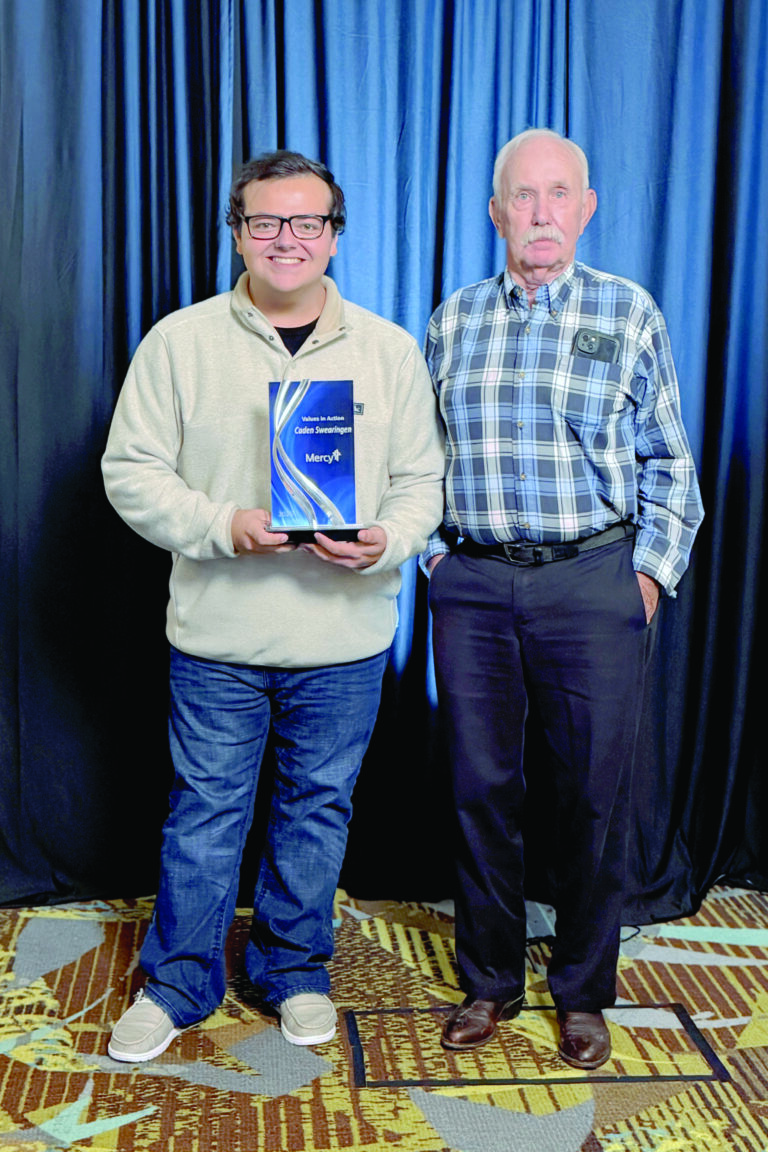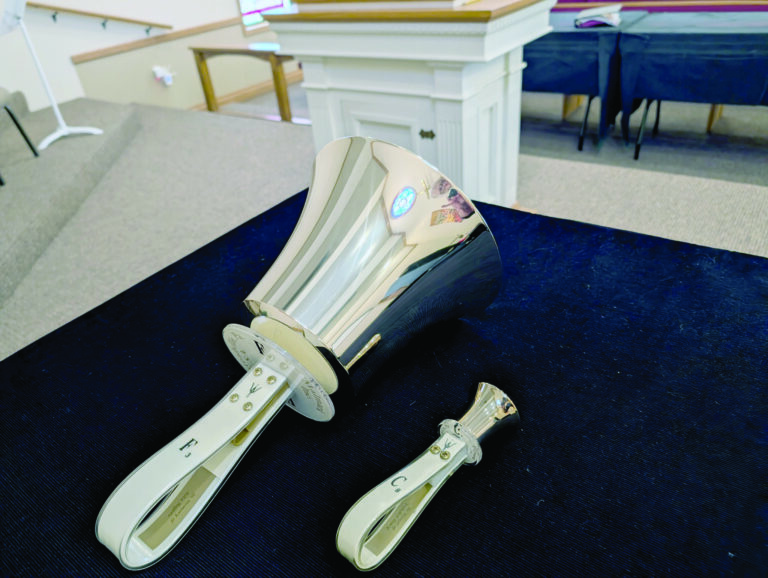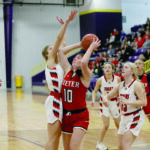Cancer no match for man
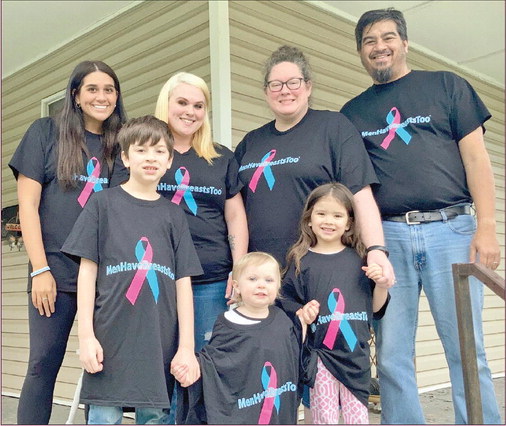
By Jordan Troutman [email protected]
Breast cancer is one of the most common forms of cancer next to skin cancer.
According to the Center for Disease Control and Prevention, there are about 264,000 women diagnosed with breast cancer annually.
However, there are another 2,400 cases diagnosed in men every year.
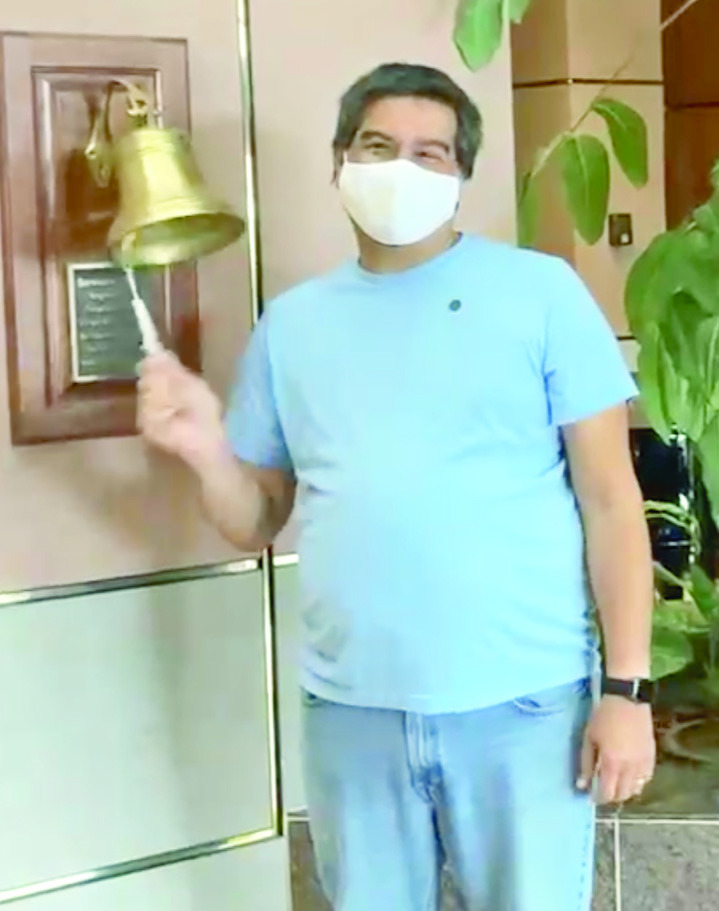

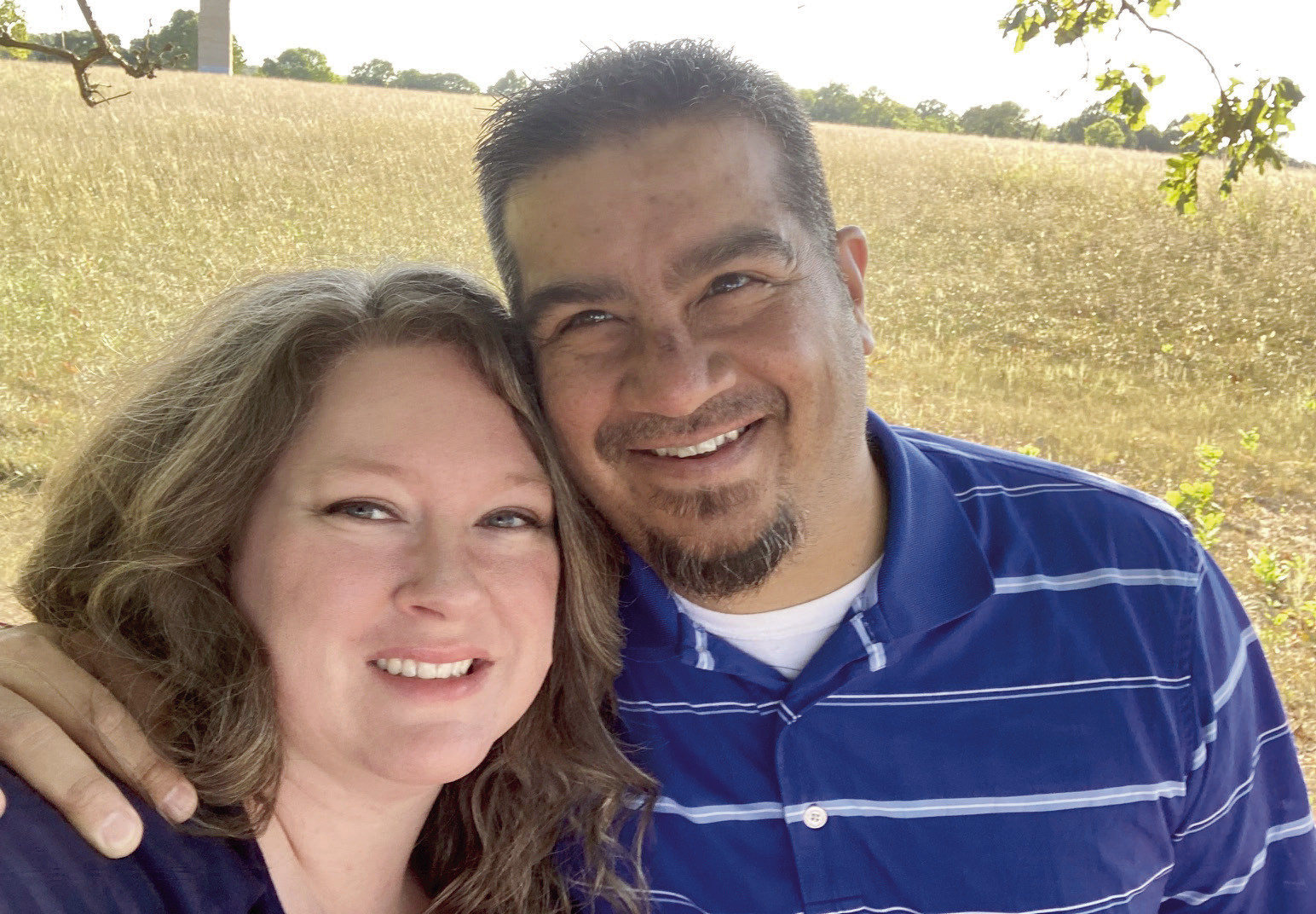
Jeffrey Brown, a 47-year-old Monett man, is one of those 2,400 men who was diagnosed with breast cancer in 2021.
Brown has been married for 15 years, has two older daughters from a previous relationship and a two-year-old granddaughter. He also has two young children, an 8-year-old son, and a 5-year-old daughter.
Brown said as far as family history goes, his grandmother had lung cancer.
“She went in for her typical exam one year and everything was fine,” he said. “The next year, she had full-blown cancer. It was so small that they had missed it the year before.”
Brown said they ended up removing one of her lungs.
“I also had an aunt who had either cervical or ovarian cancer,” he said. “But, other than that, we had no family history that I had ever worried about.”
A few years ago, while in the shower, Brown noticed lump in his right breast.
“I thought it was a cyst,” he said. “A couple of times a year, some discharge would come out of the nipple.
“Being a man, I just thought it had to be something else — no way was it breast cancer.”
In March 2021, Brown noticed that the lump had changed.
“It got hard, and it had changed shape,” he said. “I got concerned. I told my wife something wasn’t right, and she said, ‘I’m calling your doctor.’
“I had a female doctor, and I could sense her concern. She scheduled a mammogram.”
From that, doctors decided to do a biopsy on the lump and on a lymph node.
“A few weeks later, I got a call from the doctor,” Brown said. “They said, ‘It’s cancer.’ At first, you think, ‘I don’t want to hear the C-word.’ And second, you think, ‘I am 1 of 800; a little more than 1 percent of men have breast cancer.’”
Brown was set up with a surgeon who scheduled his surgery for June 28, 2021.
“On my right side, they did a modified mastectomy and took the mass, as well as 18 lymph nodes,” Brown said. “Three of those lymph nodes had cancer.
“I didn’t have to do chemo because the doctor said only three had cancer, but if four had had cancer, I would have to do chemo. I’m not sure how they figure that line, but that’s what it is.”
Brown had 33 rounds of radiation to the right side of his body.
“Monday through Friday, every day for six weeks, I would drive all the way to Springfield to have 15 minutes of radiation,” he said. “I am a Christian, and I attend church, so I had help with rides.”
On Sept. 21, 2021, Brown rang the bell that signaled him completing radiation.
“As of Sept. 21, 2022, I have been cancer-free for one year,” he said. “It was a very humble moment to go through. God got me through this. My family, my friend, my church and the Breast Cancer Foundation of the Ozarks (BCFO) helped me.
“When I went to see the surgeon, the nurse gave me a pamphlet about BCFO. They helped us with rent to help offset the costs of the treatment, and they provided us with gas cards and gift cards for the kids. At Christmas time, they also provided us with gift cards for the children. They have so many resources for anyone dealing with breast cancer.”
Brown said as a cancer survivor, there is a moment where you sit down and think, ‘How was I so fortunate?’
“I had that lump for 3 or 4 years before I got it checked,” Brown said. “How lucky was I that it wasn’t fastgrowing, that it didn’t spread, that I didn’t have to have chemo? It is hard to wrap our heads around, and we get survivor’s guilt.”
Brown said cancer is cancer, no matter what kind of cancer it is.
“I hope this reaches one man, one wife, one mom, or a girlfriend who says, ‘men can get breast cancer too,’ and they go get it checked,” Brown said. “During radiation, I got a significant sun tan on my right side, and I have no hair on that area.
“I have a scar from the surgery. I still have the fatigue, and I get tired easily.”
Brown is still on cancer medications that he takes every day.
“That may have something to do with the side effects,” he said. “For the rest of my life, I will watch out for lymphoma, and I will take this medication for 5-10 years.
“They will continue to watch for masses in my lungs in scans.”
Brown said before his diagnosis, he had never heard of a male getting breast cancer.
“I really thought it was just a cyst,” he said. “It wasn’t until it changed that we really considered it could be breast cancer. “I would tell men, always check yourself. If you notice something, go and get it checked.” Brown is also part of the Breast Cancer Happen organization.
“One of the founders went to doctors, and they all told him he just had a cyst,” Brown said. “After 7 years, he finally got a doctor who checked for breast cancer. In the medical field, it isn’t talked about because it is so rare. That is why self-evaluation is so important.”
Brown said as far as he knows, there isn’t a regularly scheduled mammogram for men.
“I may get another mammogram in the future if my doctors feel it is necessary,” he said. “When it comes to women, insurance says they should get a yearly mammogram at age 40. I’ll tell you now that women should be doing this before age 40. People are getting diagnosed in their 20s.”
At first, Brown said he was self-cautious about his scar and having one nipple.
“I would wear a T-shirt in the pool,” he said. “One time, my wife said, ‘This is a part of you.’
“During the month of October, we celebrate breast cancer awareness, but we can get breast cancer all year round. At any time to anyone, it doesn’t discriminate, you have to always be aware — both women and men.”
Brown said since his diagnosis, he has noticed other men come forward with their stories with breast cancer.


